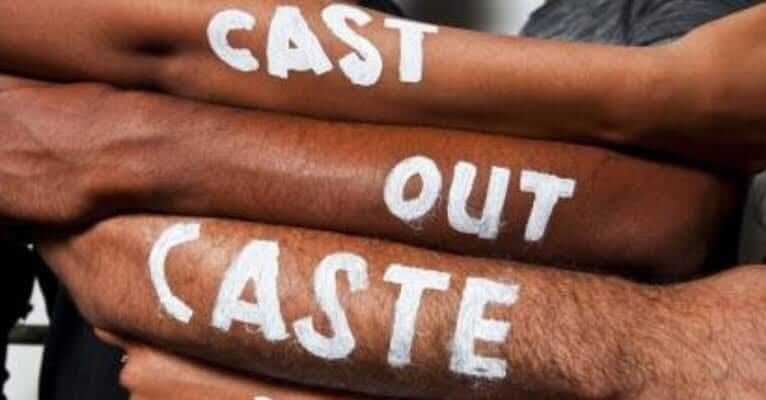
The Caste System in Pakistan: A Hidden Social Issue
By Fawad Pirzada
The caste system, often associated with Hinduism, also exists in Pakistan, where it divides people into groups based on family background and traditional jobs. This system leads to social hierarchies, with some castes seen as higher and others as lower. This article explores how the caste system affects life in Pakistan and why addressing this issue is important, drawing insights from Dr. B.R. Ambedkar’s work on caste.
Understanding the Caste System
In Pakistan, the caste system is known as zaat or qaum. It groups people based on their ancestry and traditional occupations. Certain castes are linked to jobs like barbers, butchers, and goldsmiths, often considered lower status. This classification affects social mobility, determining who people can marry and what opportunities they have in life.
Dr. B.R. Ambedkar, a prominent Indian social reformer and the principal architect of the Indian Constitution, extensively studied the caste system. He argued that caste is not merely a division of labour but a division of labourers, where certain groups are assigned the most menial and degrading tasks. This concept applies to Pakistan as well, where many people are confined to specific jobs and roles based on their caste, limiting their social and economic mobility.
Discrimination and Derogation
In Pakistan, the names of certain professions and castes, such as Kanjar, Mochi, Lohar, and Kumhar, are often used derogatorily. Additionally, religious minorities like Christians and Hindus face discrimination, with terms like Chora and Hindu being used as insults. This practice of using caste and religious identities as derogatory terms reflects deep-seated prejudices and reinforces social hierarchies. Such practices are not just socially harmful but also contribute to the marginalization of these communities.
Unlike in India, where using caste and religion-based derogatory terms is outlawed, Pakistan lacks stringent legal measures against such abuses. In India, efforts have been made to curb the derogation of caste and religious identities through legal frameworks, helping to protect marginalized groups from verbal and social abuse. This difference highlights the need for Pakistan to develop similar protections and promote respect for all communities, regardless of their caste or religion.
The Situation of Religious Minorities
Religious minorities, such as Christians in Pakistan, often experience additional discrimination due to the caste system. Many Christians are employed in low-status jobs like ‘sweepers’ or sanitation workers, not because of their faith but because of caste-related discrimination. This discrimination is starkly evident in job advertisements by the government and private employers, where positions like sweepers are often explicitly reserved for Christians or Hindus. Such practices perpetuate the caste-based stigma associated with these jobs, reinforcing social inequalities.
This situation mirrors Dr. Ambedkar’s observation that caste-based roles are enforced regardless of the individual’s abilities or desires. During celebrations like Christmas, the wider Pakistani society rarely embraces these communities, and they are often recognized only in negative contexts, such as incidents of violence or forced conversions. This exclusion is reminiscent of Dr. Ambedkar’s description of the social ostracization faced by Dalits in India, highlighting that caste-based discrimination transcends religious boundaries.
The Broader Impact of Caste
Caste-based discrimination in Pakistan affects not only Christians but also other ethnic groups, including Pakhtuns, Sindhis, and Baloch. These communities often face restrictions in social and professional settings, sometimes being forced to live in segregated neighborhoods. Dr. Ambedkar’s work emphasized that caste creates a system of graded inequality, where some castes are considered untouchable and excluded from mainstream society.
This exclusion often results in poor living conditions and limited access to essential services. For example, many low-caste individuals live in insecure housing and lack basic rights. Dr. Ambedkar argued that caste enforces social hierarchy and perpetuates economic disparity by restricting access to resources and opportunities.
The Need for Acknowledgment and Action
Acknowledging and addressing caste-based inequalities is essential for creating a fairer society. Dr. Ambedkar believed that the first step towards dismantling caste-based discrimination is to recognize and challenge it openly. In India, his advocacy for the politicization of caste issues led to significant social changes, including affirmative action policies for historically marginalized groups.
In Pakistan, a similar approach is needed to address the deep-seated inequalities caused by the caste system. This includes promoting awareness, creating inclusive policies, and ensuring equal opportunities for all, regardless of caste or background. By addressing these issues, Pakistan can work towards a more inclusive and equitable society.
In conclusion, the caste system in Pakistan is a significant but often overlooked issue that affects many aspects of life. Drawing on Dr. Ambedkar’s insights, it is clear that caste-based discrimination not only limits social and economic mobility but also perpetuates social injustice. To address these inequalities, Pakistan must recognize the existence of the caste system and take active steps to challenge and dismantle it. Only then can the country move towards a more just and equitable society for all its citizens.

Fawad Pirzada explores observations from everyday life and beyond, sharing his opinions and perspectives.




1 Comment
Very solid piece👍🏼